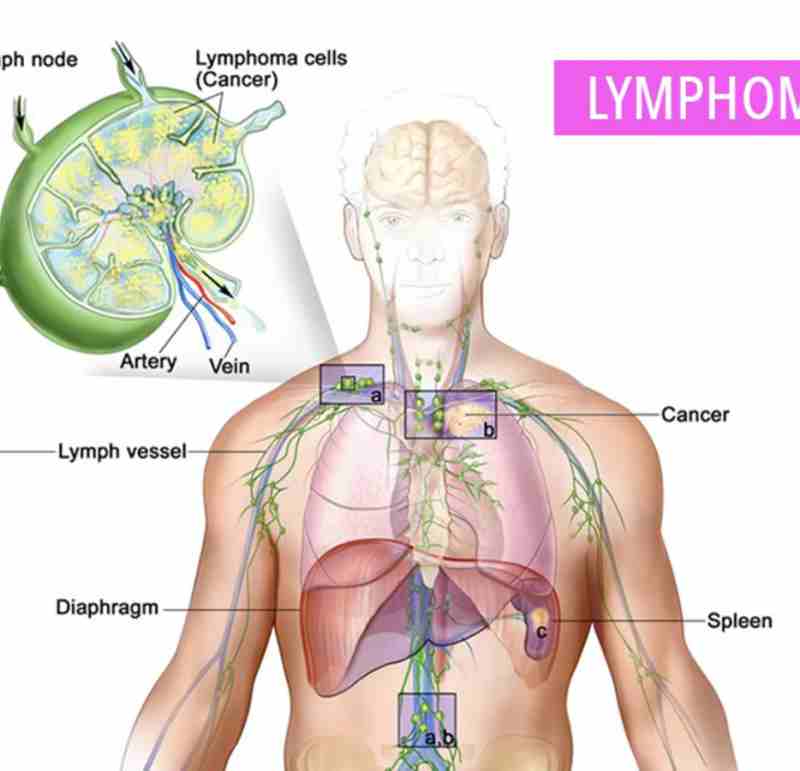Health
Symptoms of Autoimmune Hepatitis Explained

Autoimmune hepatitis may sound like a complicated medical term, but in simple words, it’s a condition where your body’s own immune system—normally the protector—starts attacking your liver cells. Imagine your body’s defense army mistakenly turning its weapons on your own city! That’s what happens in autoimmune hepatitis (AIH).
If left untreated, this condition can slowly damage the liver, leading to serious issues like cirrhosis or even liver failure. But here’s the good news—early detection and proper care from the best liver transplant specialist in India can make a world of difference.
Let’s explore everything you need to know about autoimmune hepatitis symptoms, early warning signs, and when to seek medical help.
. Understanding Autoimmune Hepatitis
Autoimmune hepatitis (AIH) is a chronic liver disease in which the immune system mistakenly attacks liver cells, leading to inflammation. The word "autoimmune" means the immune system is targeting the body itself, while "hepatitis" means inflammation of the liver.
There are two main types:
Type 1: Common in adults and often linked to other autoimmune disorders.
Type 2: Usually affects children or young adults.
Both types can cause similar symptoms, but their onset and progression may vary.
2. How the Immune System Affects the Liver
Think of your immune system as a security guard that identifies and fights intruders like bacteria and viruses. In autoimmune hepatitis, this guard gets confused and begins attacking your liver cells instead.
This ongoing attack leads to inflammation, which, if not controlled, can cause scarring (fibrosis), cirrhosis, or even liver failure over time.
3. Early Signs and Symptoms of Autoimmune Hepatitis
At the beginning, autoimmune hepatitis can be tricky-- it may show no clear symptoms or mimic other mild illnesses. You might feel tired or slightly unwell and brush it off as stress or a minor infection.
Early symptoms can include:
Fatigue or constant tiredness
Loss of appetite
Mild abdominal discomfort (especially on the right side).
Nausea or upset stomach.
4. Common Symptoms You Shouldn't Ignore.
As the disease progresses, symptoms become more noticeable. Some of the common signs include:.
Jaundice: Yellowing of skin and eyes due to excess bilirubin.
Dark urine and pale stools: Indicating liver dysfunction.
Itchy skin: Because of bile salt buildup.
Joint pain: Especially in fingers and wrists.
Swollen liver (hepatomegaly): Causing discomfort in the upper right abdomen.
Unexplained fever or weakness.
These symptoms often come and go, making it hard to detect without proper medical tests.
5. Severe or Advanced Symptoms.
In advanced stages, when the liver becomes heavily damaged, you may experience:.
Swelling in the abdomen (ascites) due to fluid buildup.
Spider-like blood vessels visible on the skin.
Confusion or forgetfulness (hepatic encephalopathy) caused by toxin buildup.
Severe jaundice.
Bleeding or easy bruising because the liver can't produce enough clotting factors.
These are serious red flags-- if you notice them, see a liver specialist immediately.
6. Symptoms in Children vs Adults.
While adults often develop symptoms gradually, children may show rapid progression.
In children:.
Rapid jaundice.
Loss of appetite.
Stunted growth.
Behavioral changes.
In adults:.
Gradual fatigue and weakness.
Joint and muscle pain.
Irregular menstrual cycles in women.
Understanding these differences helps in early diagnosis and treatment.
7. Overlapping Symptoms with Other Liver Diseases.
Autoimmune hepatitis symptoms can look like those of viral hepatitis, fatty liver disease, or drug-induced liver injury.
For instance:.
Fatigue and jaundice are common in both viral and autoimmune hepatitis.
Abdominal pain can resemble gallbladder issues.
That's why proper medical evaluation is essential. Only a specialist can confirm the diagnosis through blood tests, imaging, and liver biopsy.
8. When to See a Liver Specialist.
If you're noticing persistent fatigue, yellowing of eyes, or unexplained digestive issues, it's time to consult a liver specialist.
Early diagnosis can prevent irreversible liver damage. A hepatologist or the best liver transplant specialist in India can assess the condition, run accurate tests, and recommend appropriate treatment.
9. Diagnosis: How Doctors Confirm Autoimmune Hepatitis.
The diagnosis involves several steps:.
Blood Tests: To detect elevated liver enzymes (ALT, AST) and specific antibodies (ANA, SMA, LKM).
Imaging Tests: Ultrasound, CT, or MRI to evaluate liver structure.
Liver Biopsy: The most definitive test, which reveals inflammation and fibrosis patterns.
Together, these tests help the doctor confirm whether the cause is autoimmune and decide on the right treatment approach.
10. Complications of Untreated Autoimmune Hepatitis.
Ignoring or delaying treatment can cause severe complications such as:.
Cirrhosis: Permanent scarring of the liver.
Liver Failure: When the liver stops functioning properly.
Portal Hypertension: Increased blood pressure in liver veins.
Liver Cancer: In rare cases, long-term inflammation can trigger cancerous changes.
The good news? With early diagnosis and medical care, these complications can often be avoided.
11. Treatment Options Available.
Treatment for autoimmune hepatitis focuses on controlling the immune attack and reducing liver inflammation.
The main medications include:.
Corticosteroids (Prednisone): To reduce inflammation.
Azathioprine: To suppress the immune system and prevent relapses.
In most cases, these drugs help achieve remission. However, long-term follow-up is necessary since the condition may reappear once medication stops.
12. Role of Liver Transplant in Advanced Cases.
In some cases, when medications fail or the liver becomes severely damaged, a liver transplant may be the only life-saving option.
A transplant replaces the diseased liver with a healthy one, restoring normal liver function. Success rates for autoimmune hepatitis-related transplants are quite high-- especially under the care of the best liver transplant specialist in India, who ensures precise evaluation, matching, and postoperative management.
13. Importance of Consulting the Best Liver Transplant Specialist in India.
Autoimmune hepatitis requires specialized care from an expert who understands the complexity of liver diseases.
The best liver transplant specialist in India not only treats severe cases but also helps manage early symptoms, slow disease progression, and improve quality of life. With advanced medical infrastructure and skilled surgeons, India is now one of the top destinations for liver transplants worldwide.
14. Living with Autoimmune Hepatitis: Lifestyle Tips.
Managing autoimmune hepatitis doesn't stop with medicines. Your lifestyle plays a major role too.
Here are some practical tips:.
Eat a balanced diet rich in fruits, vegetables, and whole grains.
Avoid alcohol completely-- it worsens liver inflammation.
Get vaccinated for hepatitis A and B.
Exercise regularly but gently.
Manage stress through meditation or yoga.
Regular checkups to monitor liver health and medication side effects.
Think of it as giving your liver the peace and care it deserves after years of "battle.".
15. Conclusion.
Autoimmune hepatitis may be a silent condition at first, but with awareness and timely care, it doesn't have to be life-threatening. Recognizing symptoms early-- like fatigue, jaundice, and abdominal pain-- can make all the difference.
If you or someone you know has persistent liver-related symptoms, consult the best liver transplant specialist in India right away. Early intervention can save your liver and, more importantly, your life.
FAQs.
1. What are the first symptoms of autoimmune hepatitis?
Early symptoms include fatigue, mild abdominal pain, loss of appetite, and sometimes joint pain or jaundice.
2. Can autoimmune hepatitis go away on its own?
No. Without treatment, the condition can worsen and cause liver damage. Medication and regular follow-ups are essential.
3. Is autoimmune hepatitis curable?
It can't be completely cured, but with treatment, it can be well controlled, and patients can live long, healthy lives.
4. When is a liver transplant needed in autoimmune hepatitis?
When the liver is severely scarred or stops functioning properly, a transplant becomes the best treatment option.
5. Who is the best liver transplant specialist in India?
India has several renowned experts, including Dr. Neerav Goyal, known for his experience and success in complex liver transplant cases.
Source:
Click for the: Full Story
You might like













 Close Menu
Close Menu